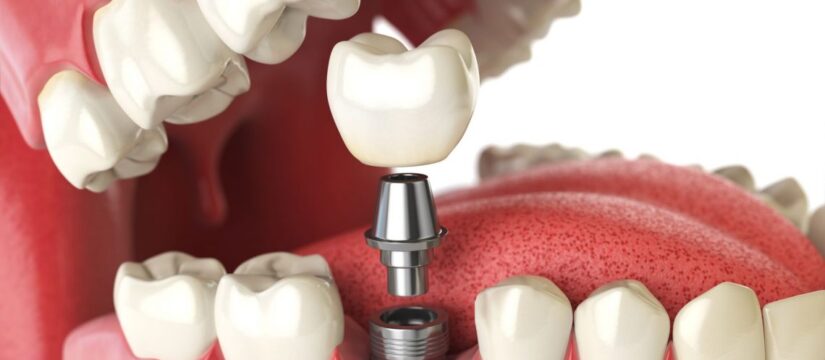
Dental implants are a popular and effective option for replacing missing or damaged teeth. While they offer many benefits over other dental restorations, the cost of dental implants can be a significant factor to consider. In this article, we will explore the factors that influence the cost of dental implants and provide some guidance for those considering this treatment.
What are Dental Implants?
Dental implants are artificial tooth roots that are placed in the jawbone to support a replacement tooth or bridge. They are made of biocompatible materials such as titanium and fuse with the bone over time. Dental implants offer a long-lasting and natural-looking solution for missing teeth that is more stable and comfortable than traditional dentures or bridges.
If you’re considering dental implants Rockville MD, you can benefit from a highly effective and modern solution for restoring your smile.
Factors that influence the cost of dental implants
The cost of dental implants varies depending on several factors, including:
- Number of implants needed: The more implants that are needed, the higher the cost will be. Depending on the extent of tooth loss, some patients may require multiple implants.
- Type of implant: There are many types of dental implants, and the cost can vary depending on the type chosen. Some implants are more advanced than others and may have a higher price tag.
- Location of the implant: The location of the implant can also affect the cost. Implants in the front of the mouth may be more expensive due to the need for a more natural-looking tooth replacement.
- Complexity of the procedure: If additional procedures are needed, such as bone grafting or sinus lifts, the cost of the implants may be higher.
- Geographic location: The cost of dental implants can vary depending on where you live. In general, prices are higher in urban areas and lower in rural areas.
- Dental insurance coverage: Some dental insurance plans cover a portion of the cost of dental implants. However, many plans do not cover them at all or have limited coverage.
- Experience of the dentist: The experience of the dentist placing the implants can also affect the cost. More experienced dentists may charge more for their services.
How much do dental implants cost?
The cost of dental implants can range from $3,000 to $6,000 per implant, with the average cost being around $4,500. This cost includes the implant itself, the abutment that connects the implant to the replacement tooth or bridge, and the crown or bridge that replaces the missing tooth.
However, this is just the cost of the implant and tooth itself and does not include any additional procedures that may be necessary. If removal of the broken tooth or bone grafting or other procedures are needed, the cost can be significantly higher.
It is important to note that the cost of dental implants is an investment in your oral health and quality of life. While they may be more expensive than other options, they offer many benefits that can make them a worthwhile investment.
Alternative options to dental implants
If the cost of dental implants is prohibitive, there are alternative options that may be more affordable. Traditional dentures and bridges can be a more affordable option, although they do not offer the same stability and longevity as dental implants.
Another option is to consider dental tourism, where patients travel to other countries to receive dental care at a lower cost. However, it is important to research the quality of care and safety standards in the country you are considering before making this decision.
Financing options for dental implants
Many dental practices offer financing options to help patients afford the cost of dental implants. These options may include payment plans with low-interest rates or third-party financing options.
It is important to discuss financing options with your dentist before undergoing the procedure. Your dentist can help you determine the best payment plan for your budget and ensure that you can afford the cost of the implants.
Conclusion
Dental implants are a popular and effective option for replacing missing or damaged teeth.
In conclusion, dental implants can be a costly investment but provide long-term benefits for your oral health and overall well-being. The cost varies depending on several factors, including the number of implants needed, location, and the materials used.
It’s crucial to do your research, consult with a dentist, and consider financing options before making a decision. While the initial cost may seem daunting, the benefits of dental implants make it a worthwhile investment in the long run.

